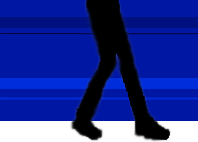


 |
||
 |
 |
|
Chapter 20Judgment DayGeorge occupied one half of a small booth in a decrepit River City cafe. She had never been to the establishment before and she planned never to revisit the place. It was in a downtrodden but safe neighborhood that she rarely entered, except when helping Nancy on one of her mysteries. She had a job to do that was not going to be pleasant. It was a task that nevertheless had to be done, if she were to be fully able to move ahead with her complicated life. This booth would soon be transformed into a courtroom, in which she would be both the prosecuting and defending attorneys. She would also function as judge and jury. The defendant, soon to arrive, was Ashley Mellencamp (aka Montague and Fitz-Hume), the biological father of her two children and the man who had done her the most grievous wrong. She was not sure what she would say to the man when he arrived, nor had she determined what her judgment would be. That verdict would be finally decided only when she had had the opportunity to read Ashley's nature by looking deep into his eyes.Outside, George knew, lingered two plainclothes policemen. Another was on a stool at the luncheon counter. All could be summoned by a very slight gesture of her hand. George had been willing to come entirely alone. After hearing Nancy's story, she trusted that she would be entirely safe and that Ashley would turn himself in, if George told him to do so. But the elder Drew had determined the rules of the encounter. George had acquiesced, knowing that the extra precautions would make very little difference. Ashley need not know they were there. The detectives outside the cafe could enjoy the fine sunny day and the operative within could relish his brackish coffee and chipped beef on toast. The signal would never be given. The new mother had by this time regained some of her girlish figure. Though her children were now more demanding and occupied so much of her time as to exclude most of her cherished outside interests, she preferred carrying them on the outside to within. And she could leave the kids with Bess, Nancy, Hannah, her mother, or Bess's mother when she needed a break-or when she had an important errand to perform. At this moment little Nancy and little Hannah were being entertained in the Drew household, with their godmothers and the maid Lucy all competing for their infantile attention. Bess was attending a mathematical conference in Trieste. George fiddled with her coffee cup. There was nothing in it. She had no intention of eating or drinking. The staff of the cafe had been advised by the police that this was some form of stakeout. They were not to importune anyone at this particular booth to purchase or consume any comestibles. George turned over the cup on its saucer to signify her resolute intention not to even think of such a mundane thing as food at such an important epoch in her life. The door opened and Ashley entered. He looked around timidly, then spotted George off to the right hand side. Although he expected to meet her there, when he saw her in the flesh he gave a visible start-not only because of his sense of plain guilt, but because her resemblance to him reminded him that the wrong he had done was also committed against himself. Ashley nevertheless approached the booth resolutely and slid onto the bench opposite George. "Hello, George," he said reflexively. "Good day, Ashley," she answered, trying to sound stern. Ashley decided that he had better not delay, but get out what he came to say. "I'm sorry." He held up his face for her inspection. Nancy had coached him that it would be best to look straight at George and not to flinch when confronted with her gaze. George looked at him for what seemed nearly a full minute, then let out a long sigh. "I forgive you, Ashley." "I do not deserve it." "No you don't," she agreed. "But I forgive you anyway. I withdraw the anger that I have felt towards you. I will not press charges. You are free to go." "But I am not entirely free. What about my responsibility to our children? Please allow me to be of help." "Ashley, I have decided to forgive you, but I cannot spare you-much as I would like to do so-the inevitable consequences of your crime. I can let you go, but I cannot keep you or even abide you about myself. When I say that you are free to go, I am also telling you that you must go. When you walk out that door you and I will be saying goodbye forever. You must never attempt to see me or the twins, or to contact us in any way. That means you cannot send us money or presents. You cannot be a support. The best thing that you can do is to tend to your devoted sister, help her rebuild her life, and to make a new life for yourself. You will get a second chance, but you must leave your spoiled first chance absolutely behind. You must understand that when I say, 'you are free to go,' it is both my blessing and your sentence." "I understand," he said with resignation. George reached out and grasped Ashley's hand. "When you were in trouble and your sister was trapped," George said softly, "you could have come to me and I would have helped you." "I know that now," he sighed. "And two wrongs do not make a right." "I liked you a lot." "There is so much that I have lost." "I cannot see you again," reminded George. "But this I want you to know. You take a piece of my heart wherever you may go. And I want you to remember this: when you find your happiness-and I am sure that you will-a piece of my spirit goes with you and rejoices in your success. That is my blessing." She released Ashley's hand. "Now please walk out the door and go on your way. I will wait here until I am sure that you are gone." Ashley opened his mouth as if to say something, but realized that he could say nothing more, except what would detract from their final moment. He looked at her once more, memorizing features that combined tenderness, nobility, and pain into a single expression. Then he stood up, turned around, and walked out the door. |